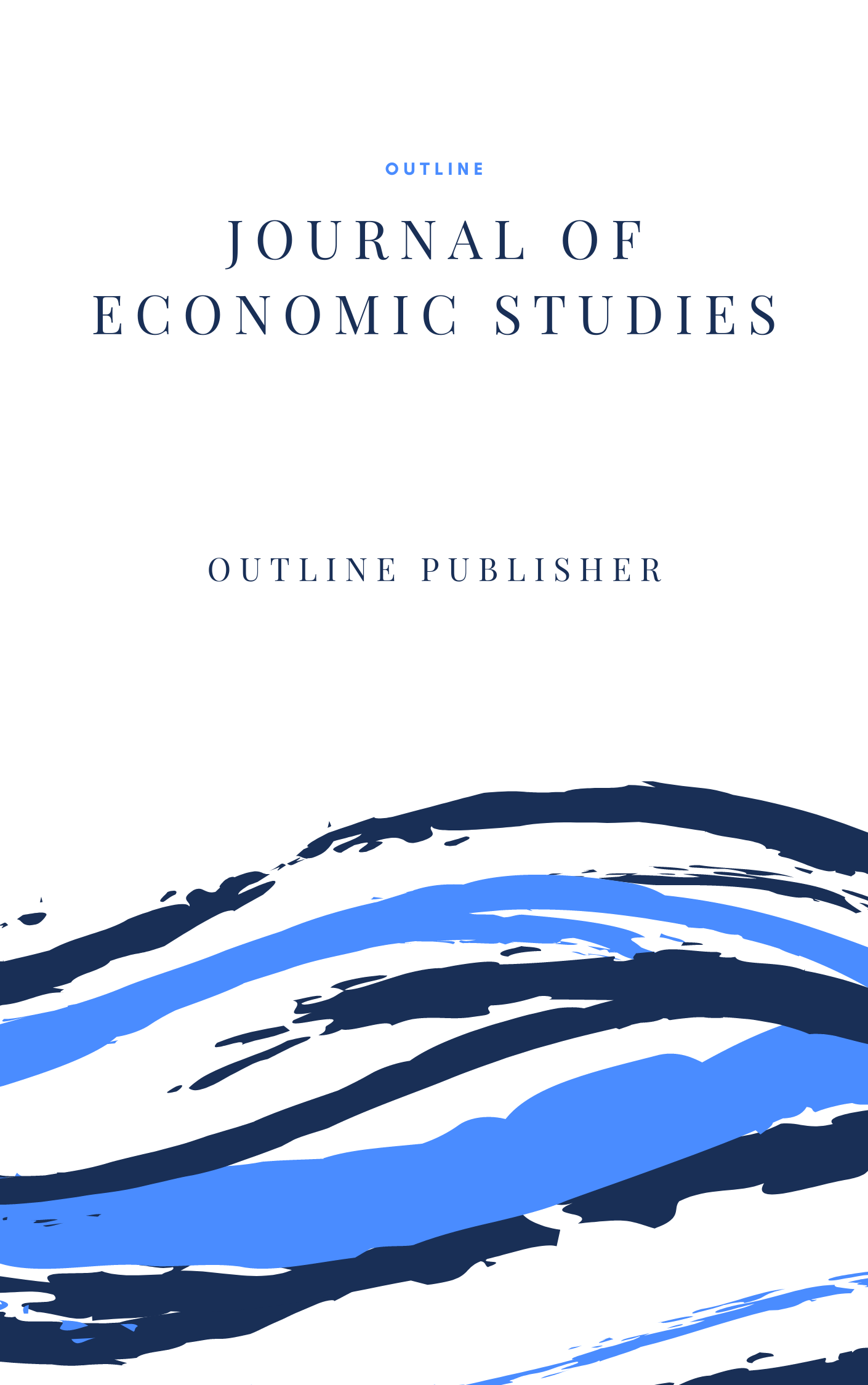The Role of Digital Transformation, Human Resources, and Marketing on Economic Growth in the Digital Industrial Era: A Bibliometric Analysis in Indonesia Over 1 Decade
DOI:
https://doi.org/10.61730/cpryk885Keywords:
Digital Transformation, Human Resources (HR), Digital Marketing, Economic GrowthAbstract
This study analyzes the role of digital transformation, human resource (HR) management, and marketing strategies in driving Indonesia’s economic growth in the digital industrial era using a bibliometric approach. Adopting the PRISMA method, 198 indexed articles (2016–2025) were systematically selected. Data were analyzed via VOSviewer to map publication trends, keyword linkages, and key contributors. Results reveal a significant surge in publications (peaking at 50 articles in 2023), with three dominant clusters: (1) synergy between HR and organizational strategy, (2) digital marketing as a catalyst for business transformation, and (3) technological infrastructure as an enabler. Universitas Pamulang and marketing-focused journals emerged as top contributors. The study concludes that digital transformation, HR, and marketing are intrinsically interconnected in accelerating Indonesia’s economic growth, necessitating holistic policy integration for optimal impact.
References
Alyani, I., Saptono, I. T., & Jahroh, S. (2023). Digital Transformation Drivers for Indonesian MSMEs. Indonesian Interdisciplinary Journal of Sharia Economics (IIJSE), 7(1), 423–441. https://doi.org/10.31538/iijse.v7i1.4374
Asari, A., Widiana, I., Hermawansyah, Mujanah, S., Winbaktianur, W., Azizah, S., Rahmiyati, N., Halik, S., Andjarwati, T., Sunata, I., Hartayu, R., Wijayanti, Y., Waworuntu, A., Sumiati, & Abdurohim, A. (2023). KEWIRAUSAHAAN DI ERA SOCIETY 5.0-UPLOAD.
Bharadwaj, A., Sawy, O., Pavlou, P., & Venkatraman, N. (2013). Digital Business Strategy: Toward a Next Generation of Insights. MIS Quarterly: Management Information Systems, 37, 471–482. https://doi.org/10.25300/MISQ/2013/37:2.3
Brynjolfsson, E., Horton, J., Ozimek, A., Rock, D., Sharma, G., & TuYe, H.-Y. (2020). COVID-19 and Remote Work: An Early Look at US Data (w27344; p. w27344). National Bureau of Economic Research. https://doi.org/10.3386/w27344
Cascio, W., & Montealegre, R. (2016). How Technology Is Changing Work and Organizations. Annual Review of Organizational Psychology and Organizational Behavior, 3, 349–375. https://doi.org/10.1146/annurev-orgpsych-041015-062352
Chaffey, D., & Ellis-Chadwick, F. (2019). Digital marketing (Seventh edition). Pearson.
Colbert, A., Yee, N., & George, G. (2016). The Digital Workforce and the Workplace of the Future. Academy of Management Journal, 59, 731–739. https://doi.org/10.5465/amj.2016.4003
Davenport, T., & Ronanki, R. (2018). 3 Things AI Can Already Do for Your Company. https://hbr.org/2018/01/artificial-intelligence-for-the-real-world
Hernawan, & Wijaya, I. (2024). An Analysis of the Challenges and Opportunities for Governance in Indonesia during the Digital Transformation of Public Organisations. Proceeding of Research and Civil Society Desemination, 2, 236–243. https://doi.org/10.37476/presed.v2i1.45
Hess, T., Matt, C., Benlian, A., & Wiesböck, F. (2016). Options for Formulating a Digital Transformation Strategy. MIS Quarterly Executive, 15, 123–139.
Kannan, P. K., & Li, H. “Alice.” (2017). Digital marketing: A framework, review and research agenda. International Journal of Research in Marketing, 34(1), 22–45. https://doi.org/10.1016/j.ijresmar.2016.11.006
Kumar, V., Choi, J., & Greene, M. (2016). Synergistic effects of social media and traditional marketing on brand sales: Capturing the time-varying effects. Journal of the Academy of Marketing Science, 45. https://doi.org/10.1007/s11747-016-0484-7
Matt, C., Hess, T., & Benlian, A. (2015). Digital Transformation Strategies. Business & Information Systems Engineering, 57, 339–343. https://doi.org/10.1007/s12599-015-0401-5
Peng, X., Heim, G., & Mallick, D. (2012). Collaborative Product Development: The Effect of Project Complexity on the Use of Information Technology Tools and New Product Development Practices. Production and Operations Management, 23. https://doi.org/10.1111/j.1937-5956.2012.01383.x
PRISMA-P Group, Moher, D., Shamseer, L., Clarke, M., Ghersi, D., Liberati, A., Petticrew, M., Shekelle, P., & Stewart, L. A. (2015). Preferred reporting items for systematic review and meta-analysis protocols (PRISMA-P) 2015 statement. Systematic Reviews, 4(1), 1. https://doi.org/10.1186/2046-4053-4-1
Reis, J., Amorim, M., Melao, N., & Matos, P. (2018). Digital Transformation: A Literature Review and Guidelines for Future Research (pp. 411–421). https://doi.org/10.1007/978-3-319-77703-0_41
Sarker, S., Chatterjee, S., University of Nevada, Xiao, X., Copenhagen Business School, Elbanna, A., & Royal Holloway University of London. (2019). The Sociotechnical Axis of Cohesion for the IS Discipline: Its Historical Legacy and its Continued Relevance. MIS Quarterly, 43(3), 695–719. https://doi.org/10.25300/MISQ/2019/13747
Verhoef, P. C., Broekhuizen, T., Bart, Y., Bhattacharya, A., Qi Dong, J., Fabian, N., & Haenlein, M. (2021). Digital transformation: A multidisciplinary reflection and research agenda. Journal of Business Research, 122, 889–901. https://doi.org/10.1016/j.jbusres.2019.09.022
Vial, G. (2019). Understanding digital transformation: A review and a research agenda. The Journal of Strategic Information Systems, 28(2), 118–144. https://doi.org/10.1016/j.jsis.2019.01.003
Westerman, G., Bonnet, D., & McAfee, A. (2014). Leading digital: Turning technology into business transformation. Harvard Business Review Press.
Widyanti, S., & Mahfudz, M. (2020). The effect of entrepreneurial orientation, use of information technology, and innovation capability on SMEs’ competitive advantage and performance: Evidence from Indonesia. Diponegoro International Journal of Business, 3, 115–122. https://doi.org/10.14710/dijb.3.2.2020.115-122





















